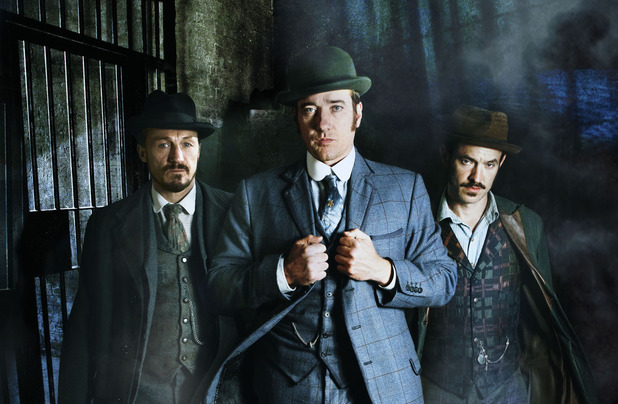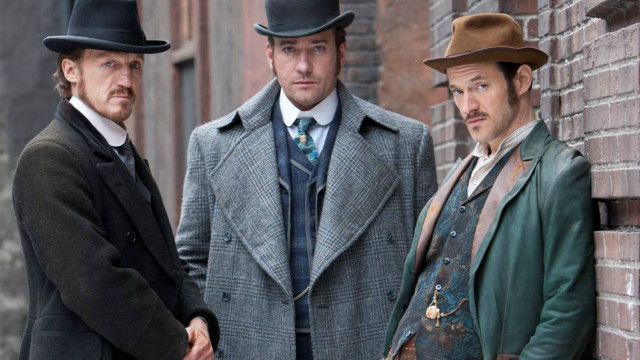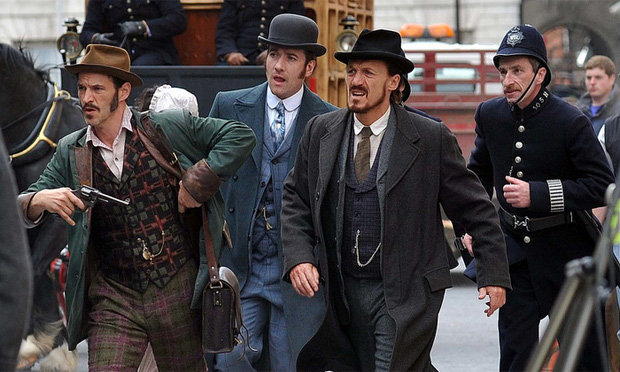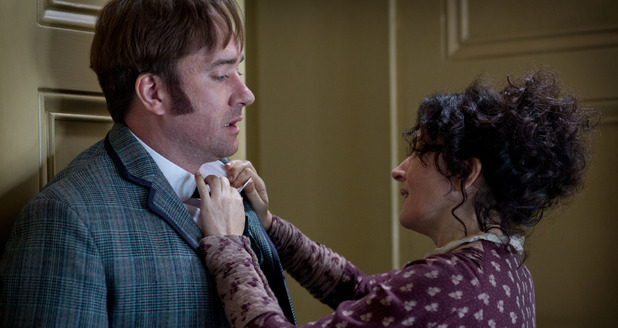Alex Davies takes a look at Ripper Street, soon to be resurrected by Amazon after a cancellation.
Sometimes I find myself confused, lost, and betrayed. Sometimes I sit to watch a show with so much promise, and become annoyed at the lack of excellence it displays. Tonight I decided to catch up on the BBC historical drama, Ripper Street, and was disturbed by the laziness.
It might just be me, but when I watch a show, I don’t want it to be perfect. It doesn’t even have to make sense. It does, however, need to be well written. British television is an elite selection of writing that I think, for me, has created an upper echelon of good TV. It is a mix of drama and comedy, but it is the writing of the episode – amongst other things – that can make or break it.
Programs like Hustle, Only Fools and Horses, Porridge, Red Dwarf, Black Books, and the epitome, Sherlock, are incredibly well written. There are several things that show the talent of the writer in each show. Sherlock, for example, is a modern day take on a classic, that is written so flawlessly that it leaves me clutching the cushion, raving to anyone who will listen about how brilliant the writers, Gatiss, and Moffat are. Everything is relevant. There are clues throughout. Not a second of the show is wasted, no matter how insignificant it may seem. Hustle is much the same if a little more classic. A show crafted so finely that the genius makes me envious. It makes me not want to exceed their talent in my own work but rather, makes me want to try to be as good as them. Like a budding guitarist who knows they will never match Hendrix, May, or Slash for excellence, but will forever strive to.
There are a few things that I think make a finely written film, book, or episode. Real characters. They don’t have to necessarily be relatable, but heroic and admirable characters, that you wish you were as skilled as, like Mickey Bricks or Sherlock, for their ability to solve problems almost nobody could. Or the classic relatable characters and their relationships, Del Boy’s loving care of his brother, yet willingness to rip him off at every chance. The relationship between Lister and Rimmer, colleagues that not just love, but live to hate each other.
Next is the importance of detail. Some writers who fail to achieve the excellence I look for, clearly know they need this detail. They fail though, by misplacing it. The detail is not continuity… Star Wars is no less awesome because the wookies wear trainers. It is not the realism. Red Dwarf is no less entertaining because of the polystyrene explosions and it is not the locations or the names. Black Books is no less hysterical without any greater location than London, or a name of any of the characters, unless it is essential or integral. The detail of the writing that makes it, is the flow. The detail of the conversation. The way the characters converse should feel completely natural, with everything fitting together perfectly. It should feel like a conversation in a pub, or a completely unique character, recognisable by the way they walk, talk, and just the way they are. If that is not achieved, the show will feel rigid and forced, which never makes for good television. Even though the characters of Ripper Street have little discernible personality, that is not the bone I am picking with the show.
Finally is the technique. Red Dwarf is a good example of a technique called foreshadowing. To explain what that is simply, the twist in the sixth sense is not by itself that technique. The clues that precede the twist, along with the twist itself is the pedestal-ed example of excellence of the technique, however. Things that seem in the moment to be irrelevant, but then by the end become integral, that makes good writing to me. I feel as though I am learning as I progress through the episode, as if my knowledge of the situation is equal to that of the character, and that once everything clicks into place, I understand every clue’s relevance. That is the kind of writing that makes me smile. Red Dwarf does this in an incredibly obvious way. It feels after studying it so much, that the writers used a template for each episode but the freshness of the topics explored make it into a captivating piece of science fiction.
These are the three things that I think make a finely written project: characters, interaction, and technique. Ripper Street has raised a serious gripe for none of them, through the entire first series. It wasn’t until, after much procrastination, that I sat down to start the second series, that I found my first annoyance with the show. As I began to watch the episode, Become Man, I became enticed, interested, and eventually enthralled by the episode as it progressed. Although as the programme came close to its climax, I felt rage build inside. I felt annoyed. I felt let down. But most of all, I felt confused.
The confusion could have arisen from a level of knowledge on the subject of writing that is slightly higher than the average, indeed only because I have forced myself to learn various things to help me improve, but Ripper Street had committed a cardinal sin. Something that, not only had I been taught not to do in school, but in primary school at that. Now as is so often the case in the production of a project as large as a BBC television show, there are several people with plenty of input, who will have the power to overrule the writer.
When a good scene is rendered irrelevant in the very next scene, however… to me that is as lazy with regard to story telling, as the character waking up at the end and realising ‘it was all a dream.’ It’s fine for children’s stories, in fact it works exceedingly well. It’s even fine for campfire ghost stories as a way to lessen the chilling ending but in the institution of excellent writing, the production company that has always been so elite that it could pick and choose from a thousand writers of the highest skill: is it really acceptable?
The scene in question was a classic act of deception, and indeed a thrilling one to watch. Until halfway through the following scene, I had heavily enjoyed it. A character turned up after the successful act of deception and Inspector Read had been informed that the location of the suspect was in fact narrowed down from another source entirely. Thus the entire avenue of exploration that the viewer had watched, had become moot. Well, I just couldn’t help but feel annoyed. A story is a linear tale. There can be twists and turns, even circles, but the listener, viewer, or reader, cannot get to a point in the story and then be told that they might as well disregard the last part of it. That is not any of the above changes of direction, but of backtracking down the same line, and then branching off in another direction entirely. It is a mere minuscule blot on an outstanding show by an outstanding production house, but at that level of industry, no, I don’t think that should have happened.
Some of the coverage you find on Cultured Vultures contains affiliate links, which provide us with small commissions based on purchases made from visiting our site.





